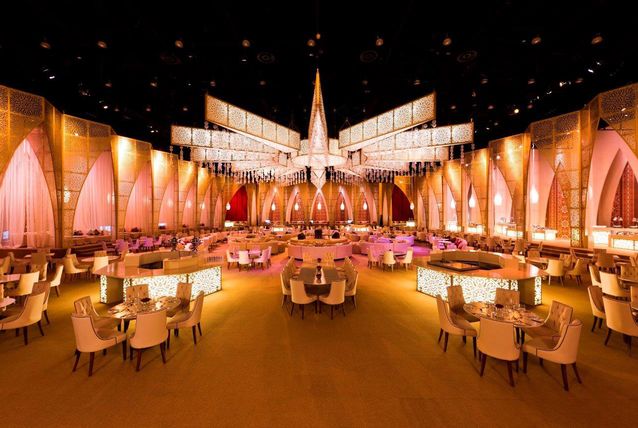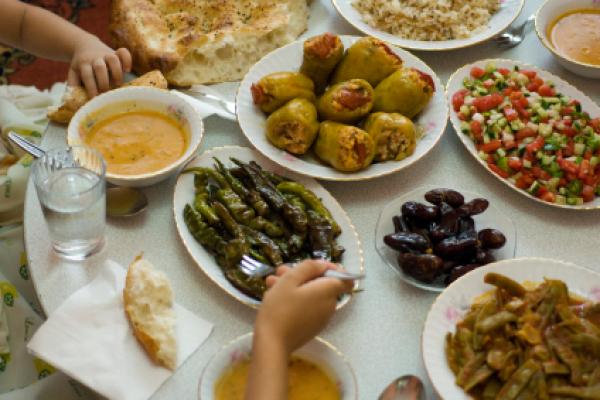What does ‘Ramadan’ mean?
The word Ramadan comes from the Arabic word ‘Ramida’ meaning ‘scorching heat and dryness.’ It also comes from ‘ramda’ which means ‘sun-baked sand.’ In Islamic terminology it refers to the intense heat in the stomach due to thirst which Muslims experience from fasting. ‘Ramadan’ can also refer to the good deeds which scorch the bad deeds during this time.
Why do Muslims fast?
Fasting is one of the five pillars of Islam and is therefore seen as act which earns God’s reward of forgiveness and thus expiates one’s sins. Ramadan is also a way for Muslims to exercise will power and control their desires. Islam teaches man to avoid excesses and to engage with their physical desires moderately, fasting is way to prove this. Ramadan is also a time to remember those who are less fortunate and a time to reflect on what it often taken for granted.
How long is Ramadan for?
Muslims fast from sunrise to sunset for approximately 30 days. Therefore the timing is different across the world but the principle remains the same.
Why does Ramadan change each year?
The Islamic calendar is based on lunar months and the new month arrives when a new crescent moon is sighted after sunset. Ramadan is the ninth month in the year and comes two weeks earlier than the last. It is currently the year 1436.
How can you start and break the fast?
It is a requirement for Muslims to eat at sunrise to make the fast easier. The meal known as Suhoor is then followed by a prayer. Iftar, the meal to break the fast at sunset, is opened with dates and water, in accordance with the teachings of Prophet Muhammed.

Ramadan Tent in Dubai
What is Eid?
Eid-ul Fitr is the celebration that marks the end of Ramadan. This also changes each year and is confirmed when the crescent moon is sighted. It is tradition to buy and wear new clothes, give money and sweets as gifts and celebrate with music. It is prohibited to fast on this day and essential to give charity and perform a special prayer.
Is Ramadan obligatory?
Ramadan is obligatory for every Muslim with the exception of pregnant women, women who are breastfeeding, or menstruating. It is also not advised for children who have not yet reached puberty, Muslims who are experiencing health problems and those travelling. Those who cannot fast are encouraged to give to charity instead.
Is Ramadan just about food?
No, Ramadan is not just about food. Muslims are also required to abstain from sexual activity from sunrise to sunset. They are also encouraged to study the Qur’an as it was during this time that it was revealed by God. It is also an important time for self-reflection prayer and charity to expiate sins.
The last 10 nights
In one of the last 10 nights of Ramadan is Laylatul-Qadr, the Night of Power. Muslims believe it is better than 1,000 nights and is the night when the angels descend to earth, God forgives sins, grants prayers and blesses those who have true faith. Some Muslims spend these days in the mosque exclusively praying.
Fasting doesn’t end there!
After Eid many Muslims fast the next 6 days, at the start of the month of Shawaal. While it is not obligatory, it is encouraged to seek God’s praise and forgiveness. Fasting during Ramadan is compulsory but voluntary fasting can also be observed throughout the year. Many people fast on Monday’s and Thursdays as the Prophet Muhammed did or to reduce sexual appetite, have sins forgiven, and gain mercy.



